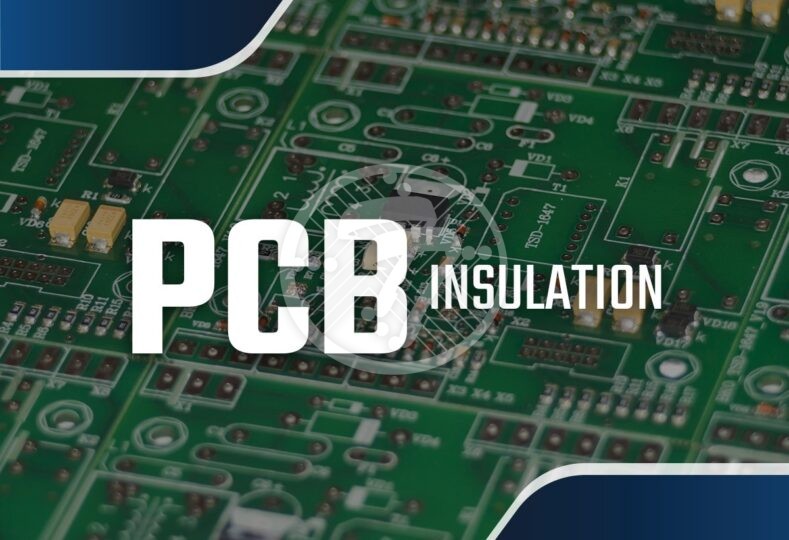Importance of PCB insulation in PCB manufacturing!

While the use of PCBs is ever increasing, what is also increasing is the heat that is generated by them. In fact, a large percentage of printed circuit boards are known to fail on account of the heat. The need to insulate PCBs is therefore paramount. Insulation helps provide protection against changes in temperature.
PCB Insulation is the process of using a dielectric material to offer the much-needed coverage that does not allow for contact with electrical conductors and helps separate & isolate conducting elements & layers. When the PCB is rightly insulated it also protects the non-conductive metals from corrosion.
Major objectives served by insulation of PCBs
The major objectives served by insulation of PCBs include:
- It ensures there is no signal interference between adjoining layers.
- It supports voltage integrity.
- It ensures suitable thermal delivery & aids in PCB operation.
- It helps maintain adhesion during the cycling of assembly temperature.
Categories of insulation coating materials
Some of the insulation coating materials commonly used include:
Epoxy Resin Coating
This is known for its strength as also its resistance to corrosion, moisture & temperature. However, it is important to remember that this isn’t too suitable when it comes to cold conditions, as it is known to shrink. Additionally, any alterations are difficult as it needs to physically stripped and can cause damage.
Polyurethane Coating
This coating is known for its durability & resistance to acids. However, the flipside with this is that rectifying any PCB defects with a polyurethane coating is tough.
Organic Silicon Coating
This is highly suited for high-circuit PCBs. The fact that it is pliable & is resistant to moisture & heat adds to its advantages. On the other hand, however, it is not known for its mechanical stability as well as its inability to resist corrosion.
Parylene Coating
This works very well for high frequency PCBs especially as it provides total cover. The only thing that stands in the way of its wide application is its cost.
Acrylic Acid Resin coating
This coating lends itself easily to any modifications & is also known for its affordability. The additional advantage that it offers is that it is moisture resistant & also dries quickly.
PCB Insulation Materials
Let us also take a look at the commonly used PCB insulation materials:
FR-4
Fabricated from entwine fiberglass, it is known for its flame-retardant coverage. The fact that it is also cost effective explains its widespread use.
FR-2
A blended material fabricated from paper & plastic carbolic acid; it is known to be long lasting and works well for single sided PCBs. It is also extremely cost effective.
Radio Frequency Coating
As their name suggests they are well suited for PCBs that enable high radio to frequency & find wide use in in-flight & other such electronics.
Flex
For flexible circuit boards, Flexible and thin plastic is typically used as substrate. Flex circuits are often protected by PCB insulation coating spray.
Metal
Metals are conductive in nature hence this may seem like a strange insulation option. However, metal substrate works well for insulation of PCBs. Being good conductors of heat & electricity, they ensure the current is handled without burning or breaking it.
Factors to be considered for material selection, Insulation thickness and layer signals
If thin insulation is used, it helps to have the ground layer adjacent to the signal layer to reduce EMI. In case of a thicker dielectric however, two signal layers can be routed on adjacent layers, provided traces on one layer is routed perpendicularly.
Type of board
For most board types, FR4 works well. However, especially for high-speed boards, controlled impedance can be a factor. In such cases the height of the PCB insulation is important.
Overall board height
The number of layers, insulation type & board height all go a long way in being able to make the right choice.
Thermal Cycling
Yet another factor is the number of times the board is exposed to high temperatures cycling.
To sum up
PCB insulation goes a long way when it comes to ensuring the durability as well as the integrity of PCBs. With PCB insulation ensuring that heat is channelized away from sensitive components, optimal operation of the PCB & hence of the electronic device is a reality.
Technotronix provides a one-stop solution for PCB manufacturing services with specialized support, reliable testing, and multi-functional features. In case if you have any questions, please feel free to contact us via email at [email protected] or call us at 714/630-9200.






